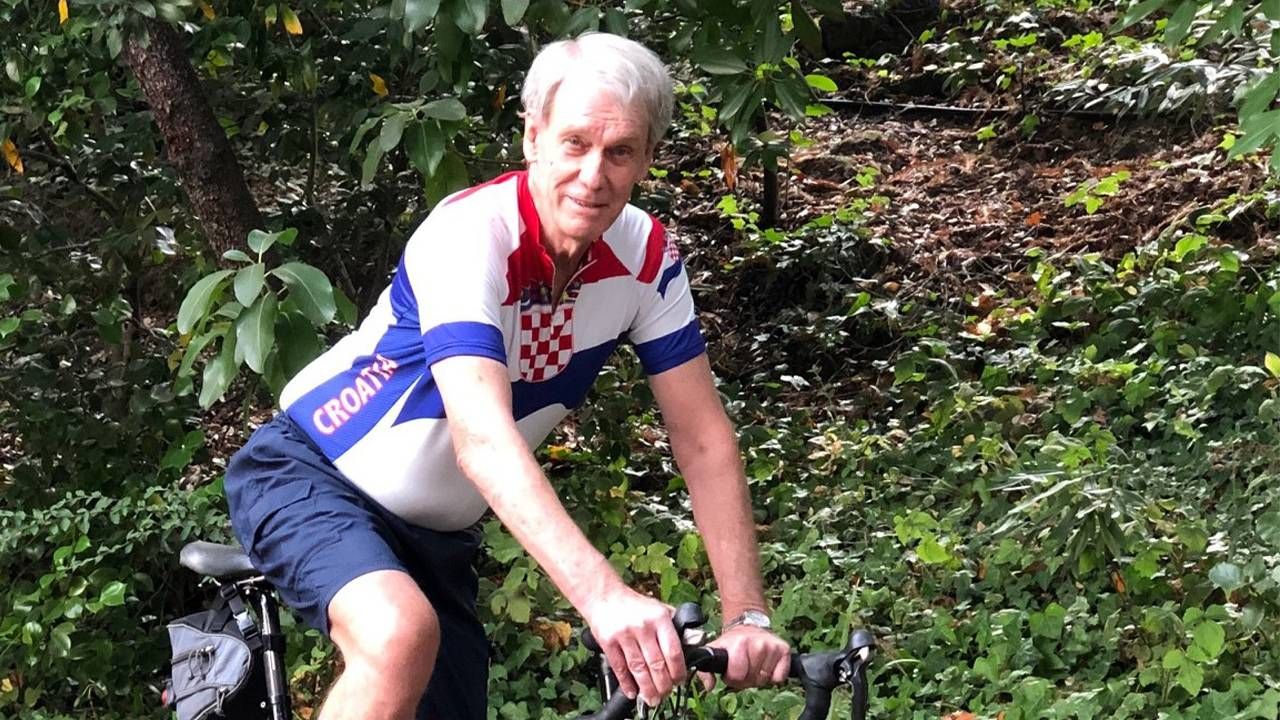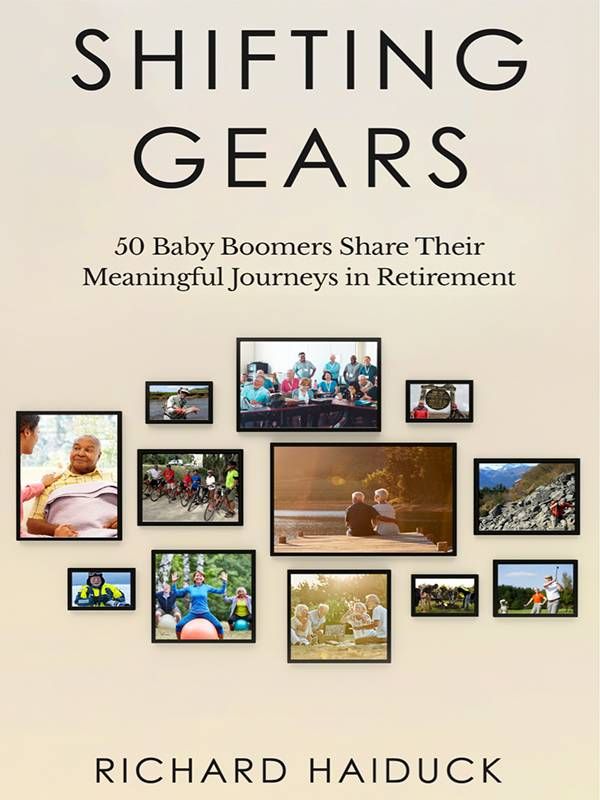Shifting Gears to Retirement: The Joys and the Challenges
What 50 boomers going through the transition told author Richard Haiduck
In his extraordinary book, "Life Is In the Transitions," Bruce Feiler interviewed 225 people and calculated when their lives were at a turning point. The most common answer: age 60-64 (tied with age 20-24), which is when many of us retire.

And now in his new book, "Shifting Gears: 50 Baby Boomers Share Their Meaningful Journeys in Retirement," Richard Haiduck drills down by asking retirees about the joys and challenges they've faced — and are facing.
Talking to 'Friends Talk Money' About Retirement Transitions

Haiduck, a semi-retired boomer based near Palo Alto, Calif., has now shared some of their fascinating responses on the "Friends Talk Money" podcast I co-host with personal finance writer Terry Savage and Wealthramp founder Pam Krueger. (The full 20-minute episode is available wherever you get your podcasts and at in the embed of this piece.)
When I asked Haiduck, 72, how boomers tend to approach retirement, he said: "I think the general direction is a highly activist retirement, testing boundaries and exploring them."
As I note on the podcast, one group of women in their seventies Haiduck interviewed have learned how to play the ukulele. A couple now teach anger management in a maximum-security prison using Buddhist meditation principles. And one woman in her seventies climbed Mount Kilimanjaro in Africa — after she had hip and knee replacements.
The boomers who found the transition to retirement easiest were the ones who did it gradually, as Haiduck did.
Krueger said she thinks retirement and the "liberation from full-time work" can be a great opportunity moment "to do something totally different," whether it's something to earn money or to raise money for nonprofits.
Who Has an Easier or Harder Time With the Switch?
Haiduck told "Friends Talk Money" that he found there's a certain type of person who has had a harder time shifting gears to retirement than others.
"Those people who had an abrupt stop," Haiduck said. "In other words, on Friday they worked at the bank and on Monday they were retired and they went from full-time working to full-time retirement."
Most of the retirees he spoke with were unprepared financially, Haiduck said.
The boomers who found the transition to retirement easiest were the ones who did it gradually, as Haiduck did. He spent much of his career as an executive for biotech companies and startups and then shifted, bit by bit, to being a consultant.
"It took me five years to retire," he said, saying retirement has turned out beautifully for him.
These days, Haiduck said, he's "retired with new interests." They include bookwriting (a lifelong dream), mentoring young social entrepreneurs ("the most rewarding work I've ever done"), reading voraciously and biking more than 3,000 miles a year. He's toying with idea of starting a podcast interviewing people about their retirement.
Some boomers Haiduck interviewed told him retirement was better than they expected; others said it was worse. And some felt it was what they figured it would be like.
"There were a number of people that said, 'These are the happiest days of my life. I'm having more joy, more passion, more sense of accomplishment than I have at any time in my life," Haiduck noted.
Her retirement role model: Tony Bennett, who paints and continues to perform.
Savage, who has no plans to retire, said "finding purpose is the name of the game" for retirement, whether through work or volunteerism. "I think the sense of purpose and that sense of meaning is something that money cannot buy."
Her retirement role model: Tony Bennett, who paints and continues to perform at 94.
"I think he's the world's best role model for retirement, continuing to do what you love to do, giving yourself the opportunity to do creative things that you might not have done before and enjoying life and giving back," Savage said.
Sometimes, Haiduck said, finding meaning takes a few tries.
One retired man he interviewed described his experience finding a right volunteering fit: "I went through four different organizations until I found the one that made the most sense for me. And I could only do it because I was retired and I could walk away from stuff as a volunteer."
Haiduck conducted his book's interviews before the pandemic but has gone back to some of the boomers since COVID-19 to see how they're faring and if they've had to change their retirement plans.

One man who had intended to do a lot of traveling has instead turned to genealogy. "He said, 'You know, I never would have done this except for COVID. This may actually be more fun than what my original plan was. I'm having a ball and learning things about my family."
But, Haiduck said, "there's a lot of others who are kind of saying, 'Man, this isn't what I signed up for. And I haven't found some significant new activity to fill this space. I'm kind of in a holding pattern."
Savage and Krueger shared their top tips on how to prepare yourself financially for retirement.
"You're gonna need more money than you think; work longer, save as much as you can for as long as you possibly can," said Savage.
Krueger, who hopes to work into her seventies, had two recommendations: hiring a financial adviser and "close your eyes for just a second and imagine a day in retirement and see what that looks like to you and what that feels like. If it's going to require more money, plan for that vision."


